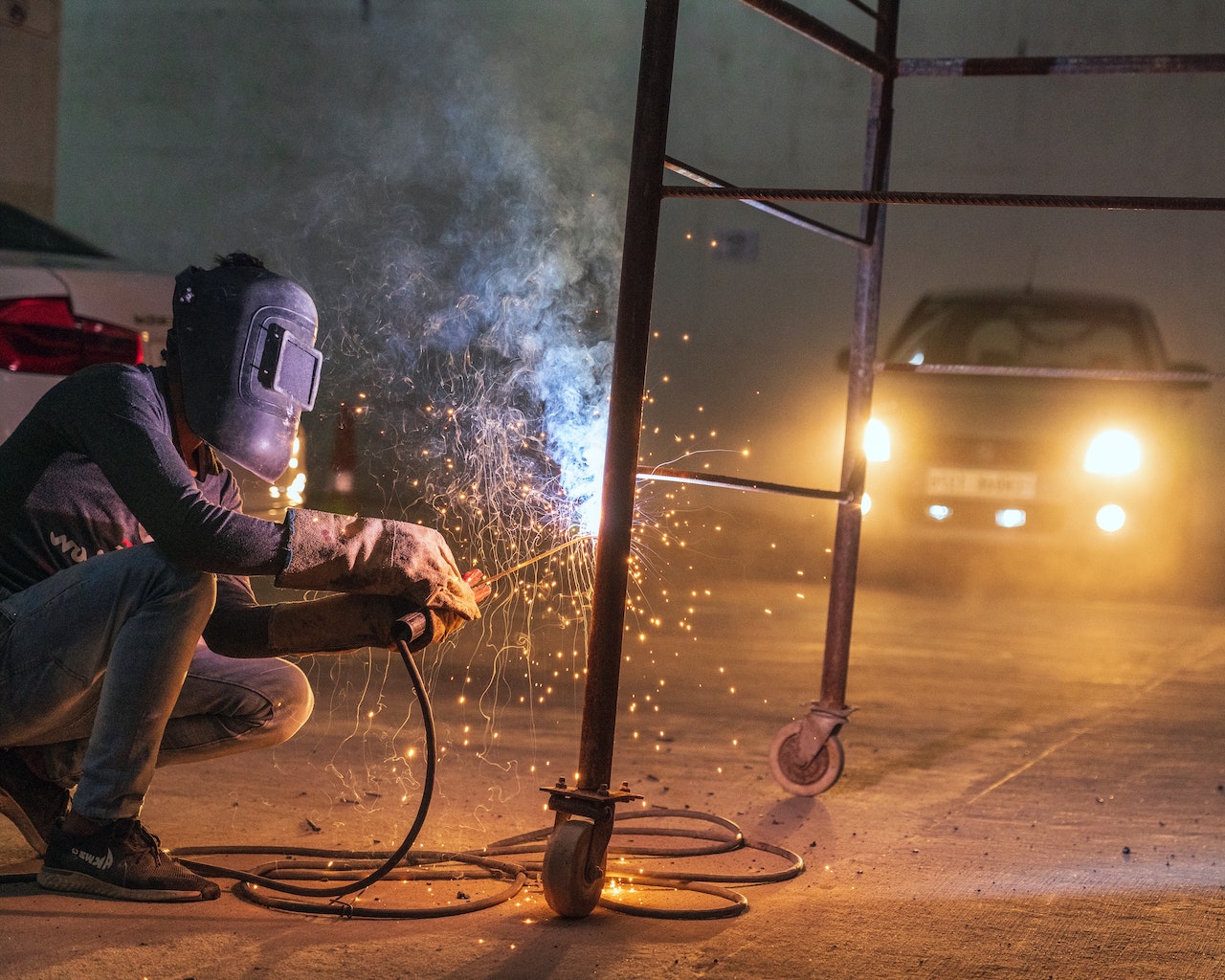A MIG (Metal Inert Gas) welder is a type of welding machine that uses a wire electrode and an inert shielding gas to fuse two pieces of metal together. The welder feeds a continuous wire electrode through a gun and into the weld pool, where it melts and fuses the metal. The inert gas, such as argon or carbon dioxide, helps to protect the weld pool from contamination and provides a stable arc for welding.
MIG welders are popular for their versatility and ease of use, as they can be used to weld a variety of metals, including steel, aluminum, and stainless steel. They are commonly used in automotive repair, manufacturing, and fabrication, as well as in a variety of other applications. MIG welders are also relatively affordable, making them a popular choice for hobbyists, DIYers, and small shops.
Some of the key features of a MIG welder include adjustable welding speed, adjustable heat control, and the ability to switch between different wire diameters and shielding gases. MIG welders can be operated from a 115V or 220V power source, and come in a range of sizes and power outputs to suit different welding needs.
Choosing the best MIG welder for car restoration involves considering several key factors, such as the welder’s versatility, ease of use, power, and features tailored for automotive work. Here are some top recommendations:
1. Hobart Handler 140 MIG Welder
Pros:
- Power: Operates on 115V, making it suitable for home garages.
- Ease of Use: Simple setup with a user-friendly interface.
- Versatility: Welds up to 1/4 inch mild steel, making it ideal for thin sheet metal and light automotive work.
- Quality: Reliable and durable construction.
Cons:
- Power Limitation: Not suitable for thicker materials beyond 1/4 inch without multiple passes.
2. Lincoln Electric K2185-1 Handy MIG Welder
Pros:
- Portability: Lightweight and compact, easy to move around.
- Ease of Use: Intuitive controls, great for beginners.
- Versatility: Capable of flux-cored welding for outdoor use.
- Power: Operates on standard 115V household current.
Cons:
- Duty Cycle: Limited duty cycle, which may require frequent breaks during prolonged use.
3. Miller Electric Millermatic 211 MIG Welder
Pros:
- Power: Dual voltage (120V/240V) capability for greater flexibility.
- Auto-Set Feature: Automatically adjusts settings based on material thickness and wire diameter.
- Versatility: Can handle a wide range of materials and thicknesses up to 3/8 inch.
- Portability: Relatively lightweight for its class.
Cons:
- Price: Higher price point compared to other models.
4. Forney Easy Weld 140 MP Multi-Process Welder
Pros:
- Multi-Process: Capable of MIG, Stick, and TIG welding.
- Ease of Use: User-friendly interface suitable for beginners.
- Portability: Lightweight and compact design.
- Power: Operates on standard 120V power.
Cons:
- Performance: Not as powerful as dedicated MIG welders, limiting its use on thicker materials.
5. Eastwood MIG 135 Welder
Pros:
- Affordability: Budget-friendly option without compromising on quality.
- Ease of Use: Simple setup and operation.
- Versatility: Suitable for welding thin sheet metal and light automotive work.
- Power: Operates on 120V power.
Cons:
- Duty Cycle: Lower duty cycle, which may require breaks during extended use.
Key Considerations for Car Restoration MIG Welders:
- Power Requirements: Ensure the welder operates on the available power supply in your workshop (120V or 240V).
- Material Thickness: Choose a welder that can handle the thickness of the materials you will be working with, typically up to 1/4 inch for most car restoration projects.
- Duty Cycle: A higher duty cycle allows for longer welding periods without overheating.
- Ease of Use: User-friendly controls and features like auto-set can simplify the welding process, especially for beginners.
- Portability: Consider the weight and size of the welder, particularly if you need to move it around frequently.
Each of these welders has its strengths, so the best choice will depend on your specific needs, budget, and experience level.

